By Debbie Burke

Karen Albright Lin
Back in the 1990s, author/editor Karen Lin and I met at the Rocky Mountain Fiction Writers Conference. We hit it off immediately and have remained good friends even though we rarely see each other except via Zoom.
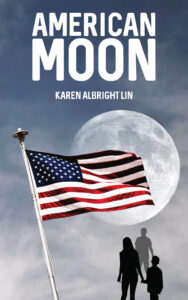
 Karen is the author of American Moon, a moving saga about the immigration of her Chinese in-laws, and MuShu Mac & Cheese, a humorous mash-up of Julia Child and My Big Fat Chinese Wedding.
Karen is the author of American Moon, a moving saga about the immigration of her Chinese in-laws, and MuShu Mac & Cheese, a humorous mash-up of Julia Child and My Big Fat Chinese Wedding.
She also teaches writing online, at conferences, and even on cruise ships–a tough gig but somebody’s gotta do it!
The following is an excerpt from a two-week class on Subtext that Karen will teach beginning April 10th through Scribophile. Membership to the huge online critique group is free.
Subtext is an advanced technique that adds depth and resonance to writing. I invited Karen to share her excellent tips with TKZ.
Welcome, Karen!
~~~
Subtext in Dialogue /Body Language — Gestures/Posture/Mannerisms/Actions/Facial Expressions

Photo credit: Pexels
Simply stated:
If dialogue is about what the dialogue is about, you’re in trouble.
People don’t always say what they mean outright. In fact sometimes the words are in direct opposition to body language. Body language includes gestures, facial expressions, posture, mannerisms, and actions that communicate without words.
Subtext can come in the form of understatement, sarcasm, or a witty punchline, a result, often, of backloading your sentence. That means putting the most powerful word at the end of the sentence, or sentence at the end of a paragraph, or paragraph at the end of a chapter. Backloading is powerful for narrative also. It makes your words lean forward into the next thing. It teases and says to the reader, “Come along with me on this adventure.”
I mentioned punchlines; I should also warn you about them. If they aren’t really great and cleverly pulled off, they can fall flat.
Comedy is all about subtext turned inside out. A joke says what we’re all thinking. Comedic details are the key. Outlandish adjectives and sarcastic barbs right in the middle of a monologue are fun examples.
Dialogue can mask the character’s desires and necessities, but it still leaves clues about what is really meant behind the words. Sarcasm, Freudian slips, unexpected words, and irony are all techniques that can be used to hint at the truth.
Let’s look at an example of emotionally charged dialogue in the movie Carol, Cate Blanchett’s character doesn’t come right out and ask if Therese finds her pretty.
Carol asks, “Were those pictures of me you were taking at the tree lot?” (Subtext: “You find me beautiful?”)
Therese replies, “Sorry, I should have asked.” (Subtext: “Is it OK for me to be attracted to you?”)
Carol says, “Don’t apologize,” (Subtext: “You don’t need to ask for permission to be attracted to me, even though I’m a woman”)
On the surface it is a conversation about photos. It is actually about their sexual desire for each other. The secondary message doesn’t tell it directly.
Use vernacular to tell us about a person. Is he educated? Irish? a braggart?
The most common flaw I see in dialogue is when the characters speak in robotic information-load rather than how real people talk. It suggests the reader wouldn’t get it otherwise. Trust your reader. The challenge is to NOT write “on-the-nose” dialogue, while still revealing important information to the audience. Resist spelling everything out in an expository way. You encourage the readers to come to you BECAUSE you are giving them credit.
For the perfect lesson on subtext in dialogue watch Annie Hall, written by Woody Allen. As Annie and Alvie talk, the subtext in their discussion is written on the screen with subtitles. Their verbal discussion is about photography. In the subtext she’s wondering if she’s smart enough for him. He’s wondering if he’s too shallow. She wonders if he’s a shmuck like other men. He wonders what she looks like naked.
Woody Allen teaches us that characters can talk about anything as long as the true message comes across, as long as the scene accomplishes its purpose. First understand the intention of the scene, then write the dialogue with rich subtext to fulfill that need.
In a real conversation and excellent dialogue (with no subtitles for comic effect) ideas are not spelled out directly, every thought, every feeling stated. Good dialogue reveals without doing that.
Does a person’s private life and public life look the same? Will they say the opposite of what they mean to disguise who they are?
Dialogue was never intended to replicate real speech. It represents attitudes and what the character wants, an outpouring of secrets the character wishes not to disclose.
If you want to study good dialogue, study successful plays. Imagine a middle-aged couple arguing over whether to outfit their new bedroom with two single beds or their old double bed. On the surface the fight is over beds. But in subtext, they reveal their whole marriage, facing what has happened to their lives and love over so many years.
Here are two bits of dialogue. This conversation is between two wealthy friends, one unsure about his future. Which version draws you in as a reader? Which one spells out too much, unsubtly, doing all the work for the reader?
Jack lined up another shot as Kyle looked on. “Dad wants me to take over his backup generator company.”
Vincent smirked as Jack’s ball spun down into the billiards pocket. “So? What’s the problem?”
“Everything! I know he wants to keep it all in the family but I just graduated from CU with honors. I want to make my way in the world on my own.”
Now read this version:
Vincent looked on as Jack pummeled a ball into the pocket. ”Something bothering you, man?”
“Four years gone.” Jack frowned. “And for what? Okay, it was fun, but…”
“At least Daddy’ll give you a nice office.”
The reader must infer information in the second version. In the first version the writer outright states it upfront in an on-the-nose way. It can be a tough skill to master. When reading a good quality novel, notice how a character is revealed through dialogue and how short and sharp most conversations are.
As suggested by our parents and kindergarten teachers, often actions speak louder than words. Experiment with this. Don’t state your point.
In Charles Dickens’s A Tale of Two Cities a character volunteers to be beheaded. That is how he says “I love you.” Much more powerful, right?
Some things go without saying. They are inferred rather than spoken. Don’t discount the powerful sound of silence.
Body Language

Photo credit: Pexels
That brings us to the subject of body language. Just as in real life, one can say a lot through their gestures, posture, actions, facial expressions, and mannerisms. Think of it as coded language.
These are also fun ways to create dynamic dialogue tags. You could use a plain simple tag:
“You don’t really care about my headache,” she said.
Or you could try:
“You don’t really care about my headache.” She turned, tempted to throw a few pieces of fine china at him.
In Terminator Arnold Schwarzenegger doesn’t say, “Watch your back. I’m still a threat to you.” Instead he says, “I’ll be back.” (The subtext: remember I’m a threat as you learned from my previous actions and dialogue) These three words add tension, raise questions about the future, and make the audience hungry for more, especially into the sequel. You want to do that with your novel, especially if you are writing a series.
The dialogue is snappy and indirect. If it had been on-the-nose, it wouldn’t be as powerful. It would have spit the meaning at the audience rather than engaging them. “I’ll be back” stayed one step away from the actual meaning.
In The Great Gatsby we have this slice of dialogue:
“I’ve got a man in England who buys me clothes. He sends over a selection of things at the beginning of each season, spring and fall.”
Is this really about clothes? No. It is about wealth.
Another example:
A 4th grade boy trudges his way to the front of the room and slips his paper onto Ms. Garcia’s desk.
After looking through two pages, she asks, “Are you sure you want to turn this in?”
What’s the subtext? What’s the trudging mean? What does the teacher’s dialogue mean?
~~~
Karen, thanks for guesting and for giving TKZ an advance peek!
~~~
TKZers: Do you use subtext in your writing? How do you avoid on-the-nose dialogue?

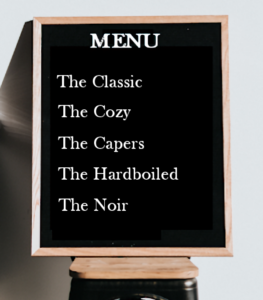 When I was writing my first novel, a friend asked what kind of book it was. I said it was a cozy mystery, but she didn’t know what that was, so I explained, “It’s a mystery with no explicit violence, no explicit sexual content, and usually no profanity. After her cheerful, “I guess you realize there’ll be no audience” response, I pretended to smile. (I get that remark a lot.)
When I was writing my first novel, a friend asked what kind of book it was. I said it was a cozy mystery, but she didn’t know what that was, so I explained, “It’s a mystery with no explicit violence, no explicit sexual content, and usually no profanity. After her cheerful, “I guess you realize there’ll be no audience” response, I pretended to smile. (I get that remark a lot.)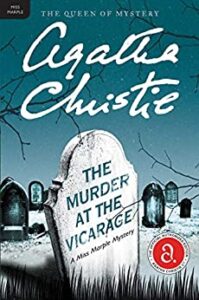 Classic Mysteries can be exemplified by Agatha Christie’s works. There is a crime, usually a murder, and the story is concerned with identifying the killer(s). Classic mysteries, like cozies, generally don’t include any explicit violence or sexual content, and there’s usually no profanity. Some of the notable entries in this category are Agatha Christie’s Miss Marple novels and Sir Arthur Conan Doyle’s Sherlock Holmes stories.
Classic Mysteries can be exemplified by Agatha Christie’s works. There is a crime, usually a murder, and the story is concerned with identifying the killer(s). Classic mysteries, like cozies, generally don’t include any explicit violence or sexual content, and there’s usually no profanity. Some of the notable entries in this category are Agatha Christie’s Miss Marple novels and Sir Arthur Conan Doyle’s Sherlock Holmes stories.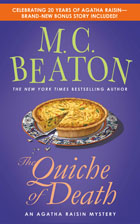
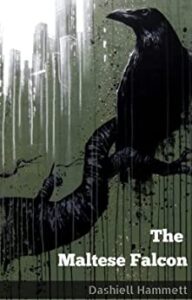
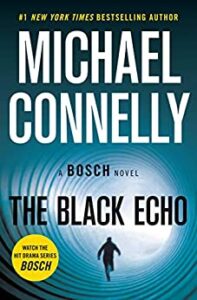
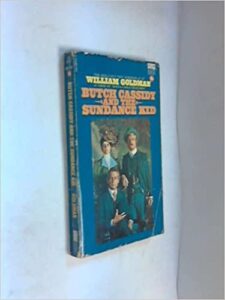
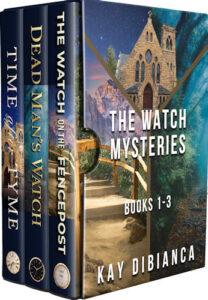
 Mrs. B and I like to start our mornings together, early, with a cup of joe and some talk. We take it in the front room where we can hear the early morning birds come out to sing. We have a nice aviary in our back yard—mockingbirds, blue jays, doves, even the occasional oriole. The mockingbirds always take the lead. After all, they can have up to 200 songs in their feathery breast.
Mrs. B and I like to start our mornings together, early, with a cup of joe and some talk. We take it in the front room where we can hear the early morning birds come out to sing. We have a nice aviary in our back yard—mockingbirds, blue jays, doves, even the occasional oriole. The mockingbirds always take the lead. After all, they can have up to 200 songs in their feathery breast.
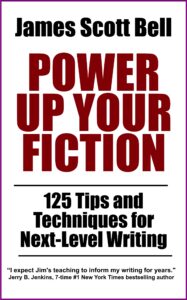

 How to win friends and influence people.
How to win friends and influence people. 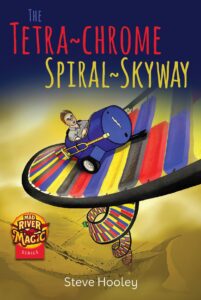

 In the case of the signing at Four Seasons Books, since I’m new to the community, I bought a gorgeous charcuterie platter from
In the case of the signing at Four Seasons Books, since I’m new to the community, I bought a gorgeous charcuterie platter from 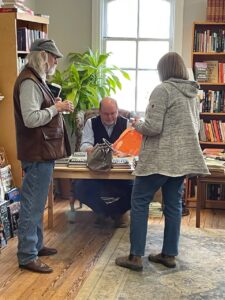 I always bring extra books–especially for the first event with a new bookseller. It’s always hard to estimate how many books is the right number for a signing, and for reasons that make all the sense in the world, booksellers often underestimate. If they run out of their stock, they can dig into my author’s copies, which they sell at list price and then just backfill my copies with the next order from their distributor. This saves a lot of embarrassment.
I always bring extra books–especially for the first event with a new bookseller. It’s always hard to estimate how many books is the right number for a signing, and for reasons that make all the sense in the world, booksellers often underestimate. If they run out of their stock, they can dig into my author’s copies, which they sell at list price and then just backfill my copies with the next order from their distributor. This saves a lot of embarrassment. As writers, it shouldn’t surprise you to learn that even while silent, our bodies speak volumes. Nonverbal cues — body language — are the physical behavior, expressions, and mannerisms that communicate how we really feel.
As writers, it shouldn’t surprise you to learn that even while silent, our bodies speak volumes. Nonverbal cues — body language — are the physical behavior, expressions, and mannerisms that communicate how we really feel.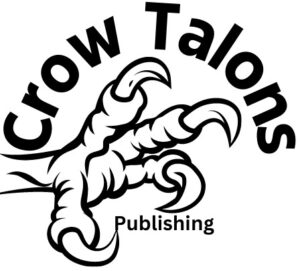
 I had a tough decision to make for this installment of JSB at the Movies. It came down to a choice between
I had a tough decision to make for this installment of JSB at the Movies. It came down to a choice between 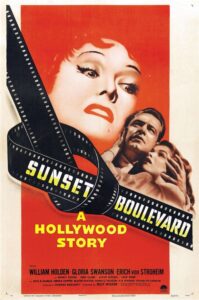 The director George Cukor suggested Swanson to Wilder, and how perfect she was. She had been one of the great “faces” of silents, and was the right age—50—for Norma. That’s when Wilder got the brilliant idea of using Cecil B. DeMille as himself, for he had famously worked with Swanson in the silent era and was still directing movies. Swanson would essentially be playing a version of herself.
The director George Cukor suggested Swanson to Wilder, and how perfect she was. She had been one of the great “faces” of silents, and was the right age—50—for Norma. That’s when Wilder got the brilliant idea of using Cecil B. DeMille as himself, for he had famously worked with Swanson in the silent era and was still directing movies. Swanson would essentially be playing a version of herself.